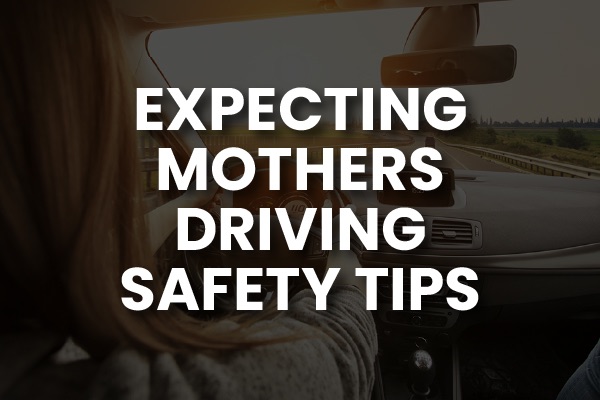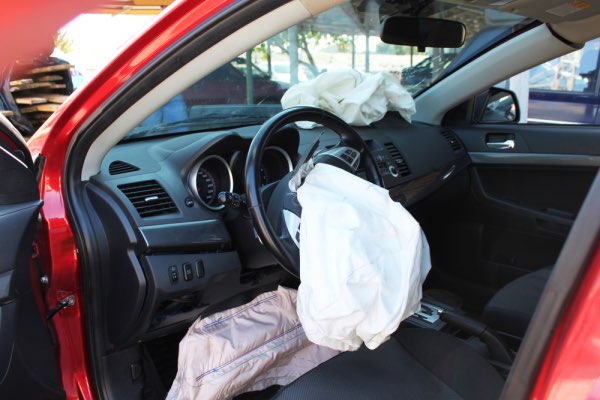
Table of contents
Pregnancy is an exciting time for many mothers around the globe. The thought of your little one entering the world and becoming a cherished part of your family fills you with joy every single minute of the day. While you may be already taking steps to protect your little one, such as changing your diet and taking prenatal vitamins, one often underlooked area that may need some adjustment during this period is driving.
In 2009, the CDC did a study on how pregnancy affects driving. They found that driving-related injuries were the leading cause of death to both expecting mothers and unborn babies in women ages 15 – 44. While driving poses increased risks to both expecting mothers and their children, it is rarely talked about in most discussions about coping with pregnancy. This is why the car accident attorneys at the Hernandez Law Group, P.C. have taken the time to research driving tips to protect you and your unborn child on the road. Here is what we found:
Prepare Before Stepping Into the Car
The most important step in ensuring you and your unborn baby are safe on the road is to prepare before you even get in the car. Taking these steps to prepare yourself and review your physical and mental state before you get into the car is vital to your safety and well-being.
1. Keep an Emergency Kit in Your Car
Even a simple trip to the grocery store can become a living nightmare in a matter of seconds. Whether it is because your car broke down, you got into an accident, or you suddenly feel ill, being prepared can ease the stress and help you be more prepared to take care of yourself in the event of an emergency. It is extremely important to always have a first aid kit stashed in your car. This first aid kit should be fully stocked and if you ever use an item, be sure to replace it so that it is ready for the next time it needs to be used.
It is also important to have an emergency kit on hand for your car. This should include items such as an emergency blanket, a rechargeable battery for your cell phone and an extra charger, a flashlight, jumper cables, some snacks, and bottles of water. Having these items on hand can prepare you in the case that you break down or need to wait a while for repairs. To protect your baby, it is especially important to stay hydrated and keep your energy up so don’t overlook the importance of having snacks and water in your emergency kit.
2. Map Out Your Route and Let Someone Know Where You Are Going

It may seem silly to map out your route for a drive that you take on a normal basis but this map isn’t for speed or even directions, it is for breaks. Your body is under extreme stress during pregnancy as it has to work harder to care for you and your unborn child. This means that you may get tired more easily, have to make more frequent trips to the bathroom, or may need to walk or stretch out a bit to reduce muscle stiffness and swelling. Knowing where you can safely make these stops is important for both you and your little one’s safety.
Make sure you always add at least ten to fifteen minutes for breaks into your travel time, or even more if your trip is longer than an hour. You will also want to make sure you eat beforehand to make sure you have plenty of energy for the drive. Always take a protein bar and keep it within easy reach to ensure that you can eat a healthy snack if needed.
Hernandez Law Group, P.C. Pro-Driving Tip;
Adding extra time to your trip is important for every driver, not just expecting mothers. Planning extra time into your schedule reduces the stress of running behind and helps you avoid dangerous driving behaviors such as speeding.
3. Drive With No Distractions and Put Your Cellphone in a Safe but Easy to Reach Space
Distracted driving is one of the leading causes of accidents in the state of Texas. When you drive, it is extremely important to leave your cellphone in a safe but easy-to-reach spot, such as a glove department. It is also important to avoid fiddling with the radio while the car is in motion.
4. If It Is Cold, Remove Bulky Layers Before You Get Into the Car
Your growing belly already makes seatbelt-wearing a bit weird, but adding in a bulky jacket can restrict the seatbelt and make it even harder to get it in a safe position. Bulky coats can also restrict your movements while driving, limiting your ability to drive safely and respond to potential hazards effectively. You want to make sure you are comfortable, able to move freely, and that the seatbelt is in the best position to be both safe and effective.
5. Before You Start the Car, Gauge How You Are Feeling
Expecting mothers often experience intense symptoms of nausea, fatigue, and lack of focus while pregnant. It is important to check in with yourself and be honest about how you are feeling. If you are not feeling well, do not push yourself to drive and instead ask someone else if they will drive you or stay home whenever possible.
Safety Tips While In the Car
After you make the necessary preparations to ensure a safe trip and that you are prepared in an emergency, it is time to make sure you are comfortable and safe within your car before you turn it on. Here are some tips to help you do just that.
1. Position Yourself As Far As Comfortably Possible From the Steering Wheel
Before you drive, you should move your seat so that your breastbone is about 10 inches from the steering wheel. If this makes it difficult to reach the pedals of your car, you can always purchase after-market pedal extenders to keep you safe while also not restricting your ability to drive. These couple of inches can protect you and your unborn child in case of an accident that sets off the airbags.

2. Tilt the Steering Wheel
If your car has the ability to change the tilt of the steering wheel, do so. This directs airbags towards your breastbone and away from your abdomen. Doing this will protect your baby in an accident.
3. Always Wear Your Seatbelt
The National Highway Traffic Safety Administration has created guidelines to help pregnant women wear their safety belt correctly to protect both mother and child. The lap portion of your seatbelt should be placed directly under the abdomen and as low as you can get it. If you cannot get it under your belly, it should be across the upper thighs and hip bones. NEVER place the belt above or over your belly. This can increase the chances of your unborn baby getting seriously hurt in the case of an accident.
Make sure your seatbelt is snug and the shoulder strap runs across your chest in between your breasts. Never place the belt under your arm or behind your back, as this can increase the risk of serious injury.
Hernandez Law Group, P.C. Pro Tip;
If you cannot wear a seatbelt comfortably due to the size of your belly, then it may be time to invest in a tummy shield. These products offer increased safety and comfort while you are on the road. Tummy shields have been crash-tested and shown to safely redirect the seat belt away from your abdomen during an accident.
What To Do If You Are In an Accident
Unfortunately, no matter how much you prepare, there is never a sure-fire way to completely remove the risk of an accident while on the road. If you are in an accident while pregnant, here is what you can expect:
Paramedics will take you to the hospital. Due to the nature of pregnancy and how anything that affects the mother affects the baby, it is extremely important to get checked out after an accident. Paramedics are trained to take all pregnant women involved in an accident to the hospital to get checked, even if the accident was minor. This is so that the doctors can check for any physical injuries to you, the baby’s heart rate, and see if there were any injuries to the fetus. Trauma from a car accident can cause preterm labor and severe injury to the fetus.

After your accident, it is important to continue to check up with your doctor to continue to monitor the condition of your unborn baby. While everything can seem fine at first, sometimes hidden injuries can show up later and should be addressed as soon as possible.
Protecting You and Your Baby
The dedicated car accident attorneys at the Hernandez Law Group, P.C. are committed to ensuring the well-being of our clients and that their right to compensation for injuries and damages are upheld. We want you to focus on your recovery while we fight to get the compensation you deserve. If you were injured in an accident, contact our team today! We will be more than happy to sit down with you and go over your case during one of our free no-obligation consultations.
